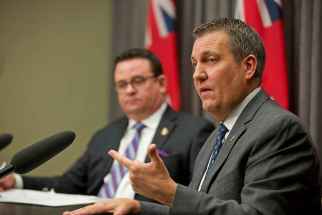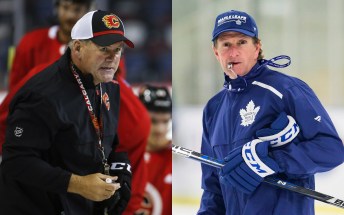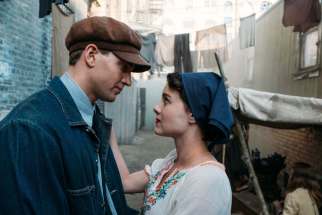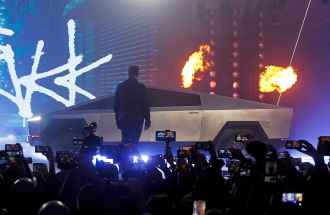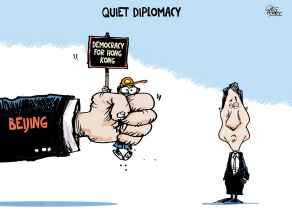Hockey’s long-overdue #MeToo movement
Read this article for free:
or
Already have an account? Log in here »
To continue reading, please subscribe:
Monthly Digital Subscription
$1 per week for 24 weeks*
- Enjoy unlimited reading on winnipegfreepress.com
- Read the E-Edition, our digital replica newspaper
- Access News Break, our award-winning app
- Play interactive puzzles
*Billed as $4 plus GST every four weeks. Offer only available to new and qualified returning subscribers. Cancel any time.
Read unlimited articles for free today:
or
Already have an account? Log in here »
Hey there, time traveller!
This article was published 28/11/2019 (1921 days ago), so information in it may no longer be current.
ANAHEIM — As much as we celebrate the game in this country, as much as we romanticize it, there is a cold, hard truth — hockey culture can be extremely toxic at times. And as we’re being reminded again this week, the claim that "Hockey Is For Everyone," while certainly an admirable goal, remains a major work-in-progress.
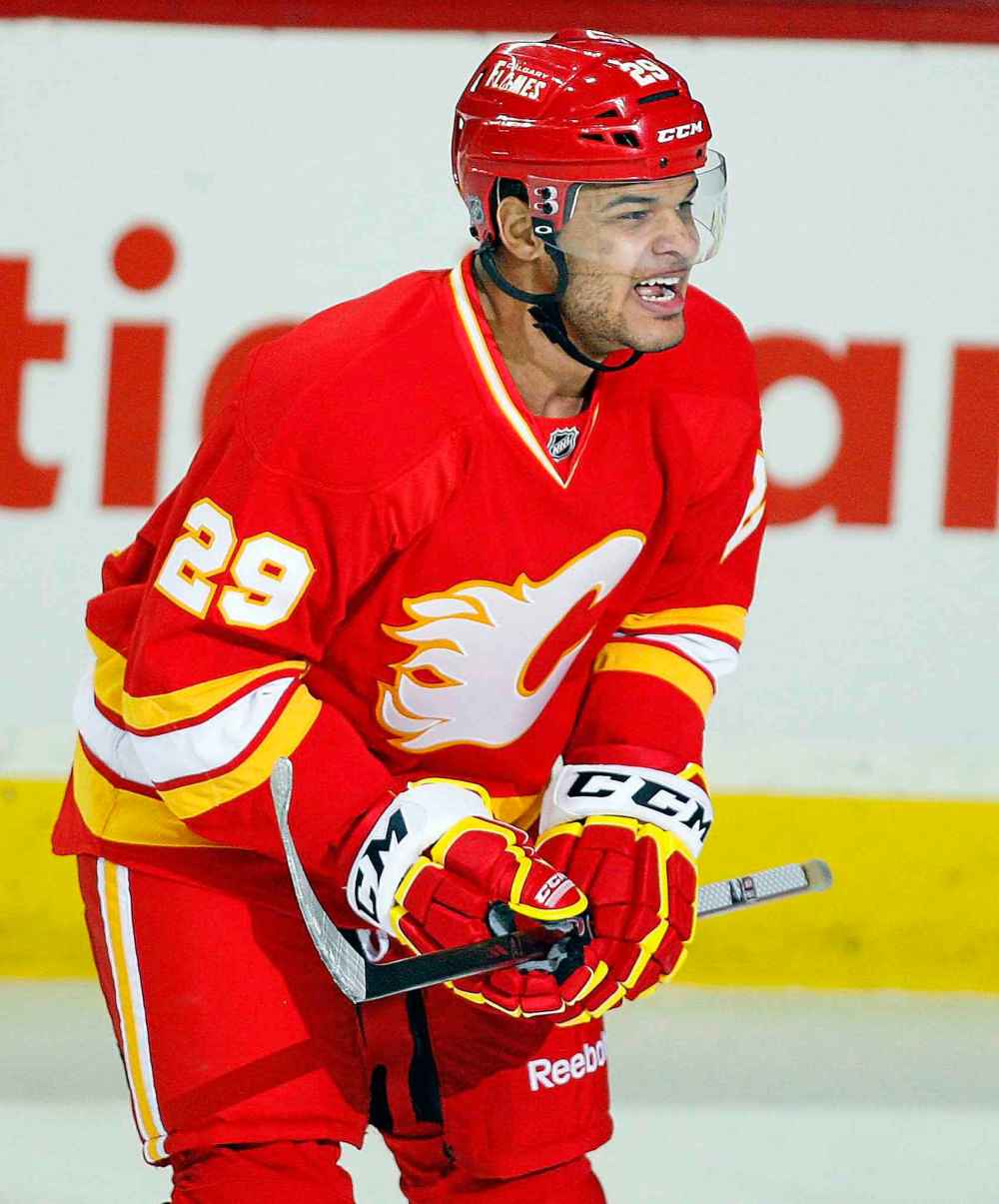
Like all forms of abuse — physical, sexual, mental — it often starts at the top of the proverbial food chain and targets those who are seen as the weakest, which is how the perpetrators get away with it so long.
Just ask Akim Aliu, the Nigerian-born former pro who dropped a bombshell this week that current Calgary Flames coach Bill Peters hurled racist remarks his way a decade ago, while both were in the American Hockey League.
The revelation, which Aliu first disclosed on his Twitter account, will likely spell the end of Peters’ tenure behind the bench. It hasn’t happened yet, as the Flames along with the NHL and NHLPA conduct an ongoing investigation which I suspect includes plenty of lawyers pouring over contract law, but the writing appears to be on the wall. And justifiably so.
Not very surprising the things we’re hearing about Babcock. Apple doesn’t fall far from the Tree, same sort of deal with his protege in YYC. Dropped the N bomb several times towards me in the dressing room in my rookie year because he didn’t like my choice of music. First one to
— Akim Aliu (@Dreamer_Aliu78) November 26, 2019
admit I rebelled against him. Wouldn’t you? And instead of remedying the situation, he wrote a letter to John McDonough and Stan Bowman to have me sent down to the ECHL. 20 year old on pace for 20 goals in his first pro year with zero PP/PK time was off to a great start in his
— Akim Aliu (@Dreamer_Aliu78) November 26, 2019
Peters’ written apology, issued late Wednesday night, is a weak attempt at damage control, filled with holes that Aliu and others have already pointed out. Too little, too late. The only thing Peters is truly sorry about is that he got caught.
After all, he’s gone on to have a long and successful career, in both the NHL and with Hockey Canada, held up as a pillar of the game — even though many have known about what he did and said, yet turned a blind eye. Meanwhile, Aliu rightfully turned into a very angry young man, whose career stalled before it could really get going.
Statement from Bill Peters he just sent me: pic.twitter.com/YtgZjjXRbY
— Eric Francis (@EricFrancis) November 28, 2019
Inspired by Aliu’s courage in coming forward, ex-player Michal Jordan spoke out about how Peters, when coaching him in Carolina about five years ago, kicked him in the back and punched another player in the head. Rod Brind’Amour, then an assistant coach with the Hurricanes and now the bench boss, confirmed Jordan’s account this week.
How many other similar stories there are out there involving Peters, waiting to be discovered?
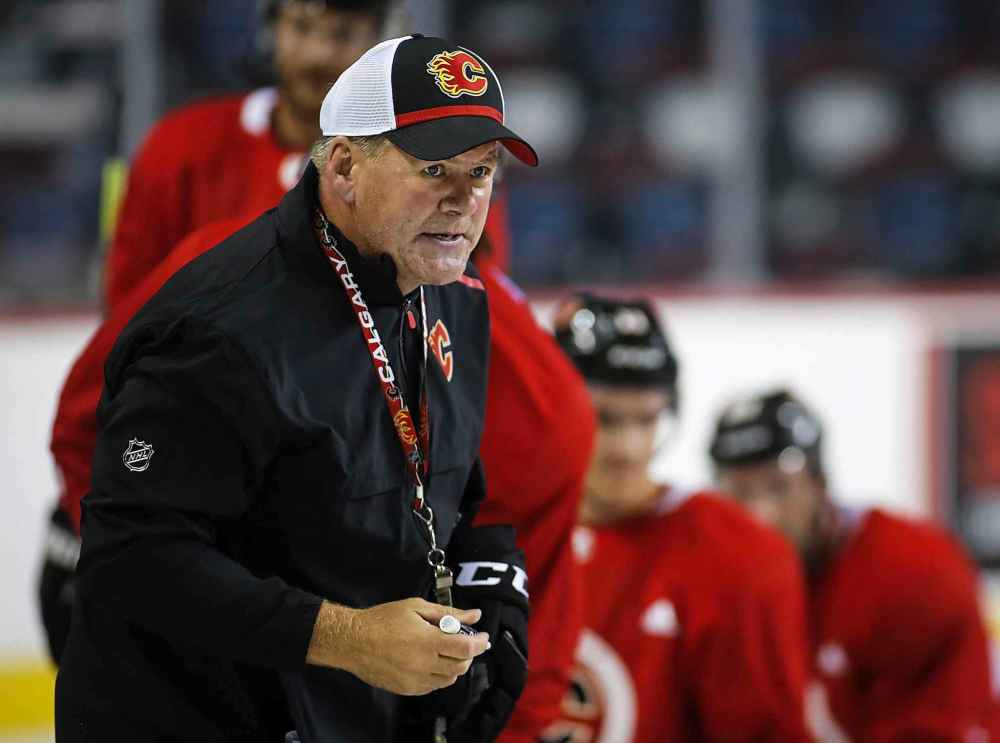
All of this came a few days after reports emerged out of Toronto how recently fired coach Mike Babcock forced Mitch Marner, in his rookie season, to rank his teammates from hardest to least-hardest working, then shared the list with the room. Babcock has since apologized for what was clearly an act of bullying and public shaming, while Marner admits it left him in an awkward and difficult spot.
Luckily for Marner, he had the raw talent to overcome all of this. Just think for a second of the impact this might have had on a lesser-skilled player.

And notice a trend here? All of this involves the power dynamic between coach and player, something that is sadly all-too-common in the sporting world but rarely only heard in whispers and rumours, with victims of this kind of treatment afraid to speak out for fear of how it might impact their career.
It’s the reason Aliu stayed silent for so long. Same with Jordan. Marner also felt as if he was no position to do as he told, the first-year pro playing under the legendary leader in Babcock. But as the old saying goes, there’s often power in numbers. And finally, it appears, the dam has broken.
I suspect we’ve only started to see the tip of the iceberg, with more and more players now feeling comfortable enough to share their own experiences. Consider it hockey’s long-overdue #MeToo movement.
There’s likely plenty of introspection and looking in the mirror going on right now from many in high-ranking hockey positions. And some aren’t going to like what they see, especially under the 2019 filter we’re all living in.
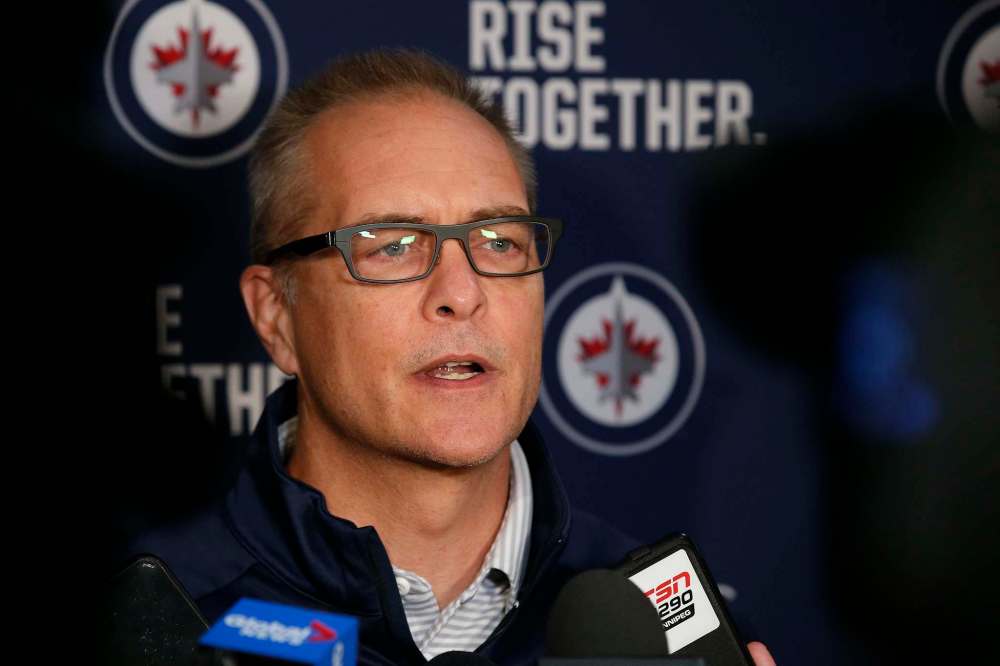
Take Jets coach Paul Maurice, for example. In a candid moment this week, he admitted that when it comes to regrets in his 22-year coaching career, he has a few. And, without getting into specific details, he admits to recently being told to lay off a young player and how it helped change his approach.
"You guys won’t get the player right, but Blake Wheeler grabs me about a year-and-a-half ago and says, ‘Just be nice to the guy.’ And I’ve got a list of about 14 reasons why I shouldn’t be because of his play, but that stuck with me. The game has changed and the players, especially (because) we have such a young group, those interactions have to change," said Maurice.
“The game has changed and the players, especially (because) we have such a young group, those interactions have to change.”
– Winnipeg Jets head coach Paul Maurice
I would argue that a player’s on-ice performance shouldn’t ever dictate whether you treat them with kindness. Hate their game, sure. But always respect the player.
"I think there is a real awareness over the last year, certainly on our staff. If I’m going to give anybody credit, I’m going to give the assistant coaches credit for kind of pushing me to evolve, to be more understanding, maybe, of young players. More caring, possibly."
Sadly, there are far too many in our society who will suggest this is all much ado about nothing, yet another example of how soft we’ve all become. "Bunch of snowflakes," some will mutter.
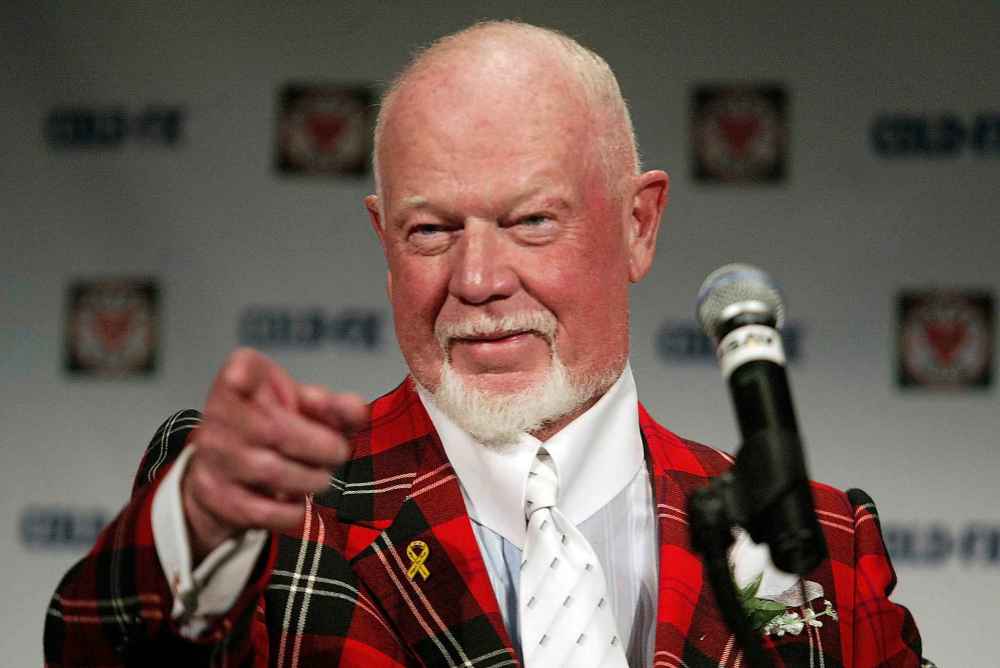
We saw it when Don Cherry rightfully got shown the exit door earlier this month, his penchant for xenophobic comments finally getting the legendary Hockey Night In Canada commentator into a self-inflicted jam he couldn’t escape.
None of this is to suggest a coach can’t be hard on his or her players. Of course they can. Treating someone with kid gloves all the time isn’t usually going to achieve the desire results. Sometimes, tough love is necessary. And, as Maurice pointed out, you’re always going to have players who ultimately dislike you.
But there’s a line that should never be crossed, one that was clearly very blurry in the past but has come into focus in recent years.
"When I first started, you’d handle a man a whole lot different than you’re handling them now," said Maurice.
Thank goodness for that. What might have once been seen as acceptable or the norm no longer is. And those who continue to live and operate in a bygone era are going to find their days in control are limited. As we’ve seen this week, their day of reckoning is coming.
Finally, one of hockey’s dirty little secrets is emerging from the shadows and getting the spotlight it deserves.
mike.mcintyre@freepress.mb.ca
Twitter: @mikemcintyrewpg

Mike McIntyre
Sports columnist
Mike McIntyre grew up wanting to be a professional wrestler. But when that dream fizzled, he put all his brawn into becoming a professional writer.
Our newsroom depends on a growing audience of readers to power our journalism. If you are not a paid reader, please consider becoming a subscriber.
Our newsroom depends on its audience of readers to power our journalism. Thank you for your support.
History
Updated on Thursday, November 28, 2019 8:55 PM CST: Add photo
Updated on Friday, November 29, 2019 9:39 AM CST: Typo fixed.







